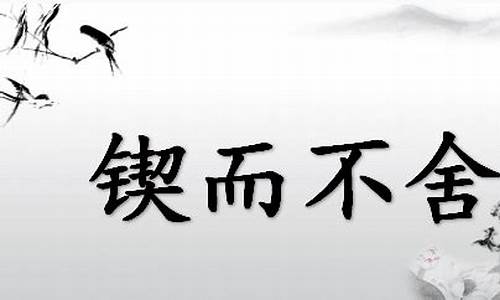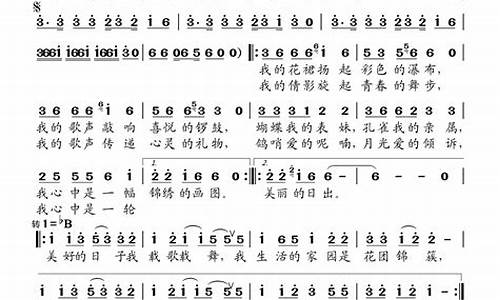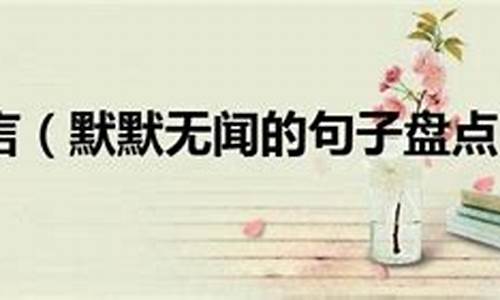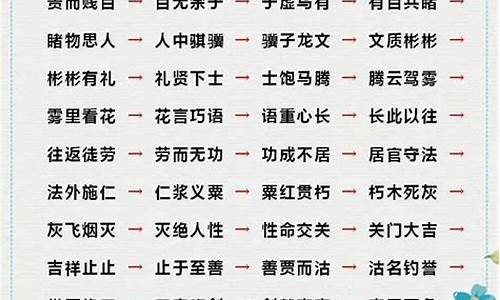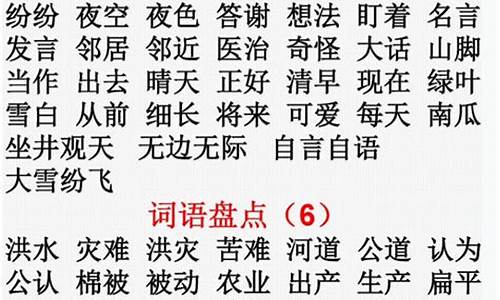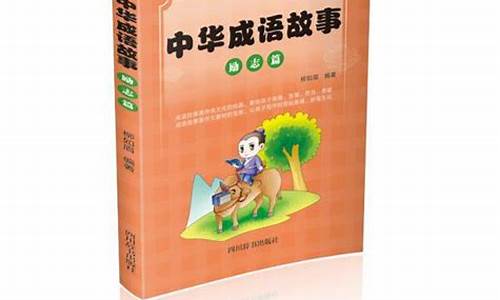猜灯谜的英语怎么说_猜灯谜的英语怎么写
1.(英语)猜灯谜
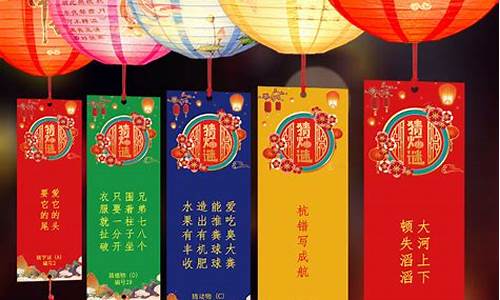
猜字谜的英语:word puzzle。
重点词汇:
puzzle
英 [?p?zl] ? 美 [?p?z?l] ?
vt.使迷惑,使难解。
vt.& vi.为难,伤脑筋。
n.难题;智力测验,智力玩具;令人费解的事[人];谜一般的事物。
短语
Word Search Puzzle?益智单词搜索 ; 经典版
Topi Word search puzzle?文字迷宫
wordboxer word search puzzle?经典版
Word Search Puzzle Game?词搜索
扩展资料
同近义词
1、enigma
英 [?'n?gm?]? 美 [?'n?gm?]?
n. 谜,不可思议的东西
短语
Enigma Variations?谜语变奏曲 ; 变奏曲 ; 谜之变奏曲 ; 极地情圣
Lab Enigma?实验室之谜 ; 未知的
Enigma Express?神秘列车
2、difficult problem
难题;难问题
短语
a difficult technical problem?一个难题
difficult point problem?难点问题
difficult technical problem?技术攻关
(英语)猜灯谜
1、春节(农历一月一日) Spring Festival;Chinese New Year's Day
由来:
Primitive beliefs and sacrificial culture are important factors in the formation of New Year's Day.?
原始信仰和祭祀文化是春节形成的重要因素。
习俗:
such as Lunar New Year's dinner, keeping the age, New Year's money, temple fairs, flower lanterns and other customs.
如团年饭、守岁、压岁钱、庙会、赏花灯等习俗。
2、元宵节(农历一月十五日) Lantern Festival(龙灯节直译)
由来:
The custom of burning lamps on the fifth day of the first lunar month is related to the spread of Buddhism to the east.
正月十五燃灯的习俗与佛教东传有关。
习俗:
Lantern Festival mainly includes a series of traditional folk activities,
such as watching lanterns, eating dumplings, guessing lantern riddles and setting off fireworks.
元宵节主要有赏花灯、吃汤圆、猜灯谜、放烟花等一系列传统民俗活动。
3、清明节(公历4月5日前后,农历二月后半月至三月上半月间) Tomb-Sweeping Day
由来:
The Qingming Festival originated from the Spring Festival and the Spring and Autumn Festival in ancient times.
清明节源于上古时代的春祭,春秋二祭,古已有之。
习俗:
Tomb-sweeping, ancestor-sacrificing and outing are common basic etiquette and custom themes.
扫墓祭祖、踏青郊游是共同基本礼俗主题。
4、端午节(农历五月初五) Dragon Boat Festival(龙舟节直译)
由来:
Dragon Boat Festival, with a long history, evolved from the dragon totem worship held in Baiyue in ancient times.
端午节,历史悠久,由上古时代百越举行龙图腾祭祀演变而来。
习俗:
The Dragon Boat picking and rice dumplings are the two main themes of the Dragon Boat Festival.
扒龙舟与食粽子是端午节的两大礼俗主题。
5、中秋节(农历八月十五) Mid-Autumn (Moon)Festival
由来:
The Mid-Autumn Festival originated from the worship of celestial phenomena,
and evolved from the worship of the moon on the autumn evening in ancient times.
中秋节源自天象崇拜,由上古时代秋夕祭月演变而来。
习俗:
offering sacrifices to the moon, enjoying the moon, eating moon cakes,?
playing with lanterns, reciating osmanthus flowers and drinking osmanthus wine.
中秋节自古便有祭月、赏月、吃月饼、玩花灯、赏桂花、饮桂花酒等民俗
6、重阳节(农历九月九日) Double-ninth Day(重九节直译)
由来:
The origin of Chongyang Festival can be traced back to ancient times. In ancient times,?
there were activities of harvest sacrifice and Mars sacrifice in autumn and autumn.
重阳节的源头,可追溯到上古时代。古时季秋有丰收祭天、祭祀大火星活动。
习俗:
There are customs such as climbing high to pray for blessings, visiting chrysanthemums in autumn, wearing dogwood,?
offering sacrifices to gods and ancestors, and feasting for longevity.
有登高祈福、秋游赏菊、佩插茱萸、祭神祭祖及饮宴求寿等习俗。
百度百科——中国传统节日
1、f(ruit)what people and animals eat水果
2、w(ater)the liquid in rivers ,seas,etc水
3、d(rink)take water,tea,etc.in through the mouth喝
4、d(essert)sweet food eaten at the end of a meal甜点
5、c(heese)soft or hard food made from milk 奶酪
声明:本站所有文章资源内容,如无特殊说明或标注,均为采集网络资源。如若本站内容侵犯了原著者的合法权益,可联系本站删除。

